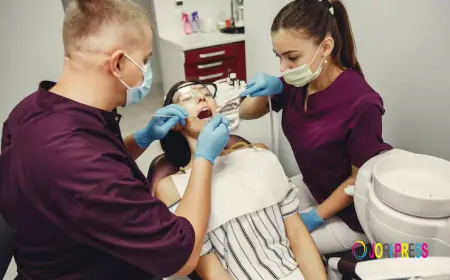STD Test After a Cheating Partner: What to Do

Discovering that a partner has been unfaithful can feel like the ground has shifted beneath your feet. Aside from the emotional toll, there’s an important health step that often comes next—getting an Std Test Dubai. While it’s never easy to think about sexually transmitted infections in the wake of betrayal, protecting your health should be your first priority. This guide walks through the practical and emotional journey of getting tested, helping you take control and move forward with confidence.
Why an STD Test Matters After Infidelity
Risk Doesn’t Always Look Obvious
When someone in a relationship is unfaithful, it can open the door to exposure to STDs—even if the partner “seems healthy.” Many sexually transmitted infections don’t show symptoms right away. In some cases, there may be no symptoms at all. That’s why relying on appearances or assumptions isn’t enough. An STD test is the only reliable way to know your current health status.
Early Detection Means Better Outcomes
Getting an STD test as soon as possible can make a significant difference. Many infections are easier to manage when caught early. Some can even be cured. Delaying the test might allow an infection to go unnoticed, possibly causing long-term complications. Testing helps you stay informed, protect future partners, and make empowered decisions about your care.
When Should You Get an STD Test?
Testing Timing Depends on Exposure
If you’ve recently discovered infidelity, the next step is figuring out the right time to get tested. Different infections have different “window periods,” which is the time between potential exposure and when an infection can be reliably detected by a test. For instance, some STDs may show up on tests within a few days, while others may take a few weeks. The general recommendation is to get an initial STD test soon after discovering the infidelity and then follow up with another test after the window period passes.
Follow-Up Testing May Be Needed
Because not all infections appear in a single test or right away, your healthcare provider may suggest testing again after a few weeks or months. This ensures more accurate results and gives you peace of mind. Multiple tests are a common part of staying safe and healthy after exposure.
Common STDs to Be Aware Of
Silent Infections Can Still Spread
Many people think of STDs as easy to notice, but that’s often not the case. Chlamydia, gonorrhea, and even HIV can go undetected without testing. Other infections like herpes may not show symptoms until much later or may be misidentified. An STD test is the only way to be sure of your status, especially after a known risk like infidelity.
Partner Testing Is Just as Important
Even if you're tested and treated, it’s also important that the unfaithful partner gets tested as well. This helps prevent any possibility of reinfection. Having an open, honest conversation about testing, while difficult, can help protect both partners' health moving forward.
Preparing for an STD Test Emotionally
It’s Normal to Feel Nervous or Upset
It’s completely understandable to feel overwhelmed about getting an STD test after betrayal. Some people feel shame, anxiety, or even guilt—even when they’ve done nothing wrong. Remember, taking the step to get tested is not just responsible; it’s brave. You’re showing care for yourself and your future.
Support Can Make a Difference
You don’t have to go through this alone. Whether it’s a close friend, a counselor, or a support group, reaching out to someone you trust can help ease the emotional weight. Having support can make it easier to stay grounded and focused on your health.
What to Expect During an STD Test
The Process is Usually Quick and Private
Many people avoid getting tested because they’re unsure of what to expect. But the STD test process is usually simple. It may involve a urine sample, blood test, swab, or a physical exam—depending on the type of infection being tested for. Results can come quickly, and most testing services are designed to be discreet and respectful.
No Judgment, Just Information
The purpose of an STD test is to give you clear, actionable information. It’s not about blaming or judging anyone. Your results are your private health data, and professionals are there to support you—not criticize. Understanding this can help reduce stress and make the testing experience more manageable.
What to Do After Getting Your Results
If Your Results Are Negative
If your STD test results come back negative, you’ve taken a big step in confirming your health. It's still wise to follow up with another test after the recommended time period. Continue protecting yourself in the future by communicating openly with future partners and staying informed about sexual health.
If Your Results Are Positive
If the STD test comes back positive, it can be a tough moment—but it's not the end of the road. Many STDs are manageable, and some are completely curable. Early detection means you can begin the right care quickly and avoid complications. Make sure to follow through with any next steps, including potential retesting or informing past partners if needed.

Moving Forward with Confidence
Your Health Is in Your Hands
Going through infidelity is painful, but getting an STD test is one way to reclaim your power. You’re making your health a priority and refusing to let someone else’s actions define your future. Whether the results bring relief or require next steps, what matters most is that you took action.
Healing Is Physical and Emotional
While the STD test takes care of your physical well-being, don’t forget to look after your emotional healing, too. Betrayal can shake your self-worth, trust, and sense of safety. Take time to heal, process, and rebuild. Self-care, boundaries, and support are all part of the recovery journey.
Final Thoughts
Getting an Std Test in Dubai after discovering a cheating partner isn’t just about catching infections—it’s about reclaiming your health and peace of mind. The emotional impact of infidelity is deep, but by taking this responsible step, you’re prioritizing yourself in the best way possible. With the right information, support, and care, it’s possible to come out of this chapter stronger, wiser, and healthier.
Choosing to get an STD test shows strength and responsibility. It’s not an overreaction—it’s a smart, proactive move. You deserve to know where you stand and to protect your future with confidence and clarity.
What's Your Reaction?
 Like
0
Like
0
 Dislike
0
Dislike
0
 Love
0
Love
0
 Funny
0
Funny
0
 Angry
0
Angry
0
 Sad
0
Sad
0
 Wow
0
Wow
0



















































